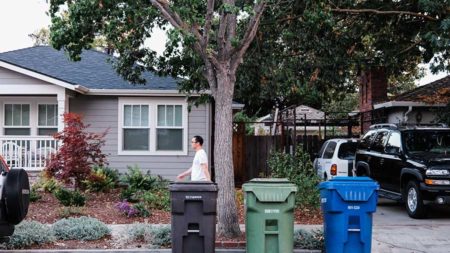Not sure how much you should spend on housing? Find out how to better budget for rent.
If you’ve ever found yourself wondering if a place is too fancy for your budget or if you could do better, you’re not alone.
Unfortunately, there’s no set rule for determining how much your rent should be. It sounds like a cop-out answer, but that’s because you have to factor in variables like your income and location.
What about the 30% of your income rule?
Some financial experts have traditionally advised allocating 25% to 35% of your budget to rent. Of course, with expensive housing markets like New York and San Francisco, this range isn’t always possible.
With that in mind, think of the 30% figure as just a suggestion, not a concrete rule. Everyone’s housing circumstances will vary, so don’t stress about following this guideline to a T.
In fact, student loan refinancing company Earnest found that renters making under $30,000 a year tend to spend over 30% of their gross income on housing. Meanwhile, those making over this amount tend to spend less than the suggested 30%.
In other words, the 30% rule doesn’t make sense for either high or low earners. All this goes to show that it’s outdated and neglects to account for your bigger financial picture.
How to Budget for Rent
But if the 30% rule is outdated, then how exactly do you budget for rent?
Here are our top tips.
Remember to factor in your utilities
The cost of rent doesn’t typically include the cost of utilities, but these crucial expenses are essential needs that your budget shouldn’t leave out. That includes:
- Electricity
- Water
- Gas
- Internet
- Any other mandatory housing expense
Some apartment complexes may even require that you have renter’s insurance—if that’s the case for you, don’t forget to include it. The same goes for complexes that have shared laundry facilities instead of individual units; though it may seem like a small cost, it’s still worth factoring into your budget.
Look for hidden costs
Some apartment complexes include fees that may as well be included as part of rent, although they’re often worded as “non-optional.” These include but are not limited to:
- Application fee
- Valet trash
- Parking
- Pest control
- Pet deposit
- Security deposit
Like your utilities, these hidden costs should also be factored into your budget, especially if they’re recurring. True, your security deposit is a returnable deposit—ideally you’ll get it back, but that’s as long as you don’t damage your apartment too badly.
Prepare to cut back on other parts of your life
If rent is going to take up a sizeable portion of your budget no matter what, then it’ll only make sense to trim other categories. No, that doesn’t mean eating only once a day or not using heating during the winter. It simply means making more cost-effective choices, like:
- Cooking at home more often instead of eating out
- Canceling subscription services, like Netflix, magazines, and StitchFix
- Doing home workouts instead of getting a gym membership
- Carpooling to work or school from time to time
Giving up or reducing some small luxuries can give your budget more leeway so that you can pay your rent and still have room to save.
Consider how much you actually use your apartment
It’s obvious: you live there. But outside of sleep, how much time do you actually spend there? Do you like to host parties and get-togethers at your place—or are you often out hanging out at a coffee shop or a friend’s?
There’s nothing wrong with having people over. If that’s the case for you, you may find that a large floorplan is ideal (so long as it fits your budget).
However, if you’re not often at home because of work or your social life, it may pay off to rent someplace smaller. Even if it’s not your immediate first choice, a smaller apartment often means cheaper rent.
How can I make paying rent easier?
If rent is looking too steep for your wallet, don’t resign yourself to couch-surfing just yet. Consider these options to help make your housing costs a little less burdensome:
- Find a roommate. There’s no easier way to make rent more affordable than by splitting it with a roommate; the cost of sharing a two-bedroom apartment tends to be significantly cheaper than paying for a one-bedroom unit by yourself. To find a roommate, try looking in local Facebook groups or asking friends if they know anyone in a similar situation. Or, post an ad on Craigslist—just be sure to conduct a thorough interview with anyone looking to live with you first.
- Opt for living farther away from work or school. Apartments downtown or near a city’s center tend to be significantly more expensive than units on a city’s outskirts. If transportation allows for it, consider renting someplace more affordable even if that means it’s farther away from work or school. Sure, maybe your commute will be a bit longer, but if the cost of gas or public transit isn’t offset by the difference in rent, you’ll be doing your budget a huge favor.
- Live with your parents. Remember that movie Failure to Launch, starring Sarah Jessica Parker and Matthew McConaughey? In it, Parker’s character is paid to get McConaughey’s to move out from living with his parents. It’s an example of how there’s social stigma against adults living at home with their parents, but make no mistake—there’s no shame in doing so. Actually, it’s a privilege to be able to live at home; doing so can save so much money in the long run. It also doesn’t have to only benefit you—you can help your parents out by paying a subsidized rent, buying the groceries, or even taking on the responsibility of household chores.
Conclusion
There’s no hard rule for how much your housing should cost you, but that doesn’t mean you should go all out on a place above your means. Your budget should ultimately still have enough room to make any necessary loan payments and save for both larger financial goals and unexpected emergencies.
Maybe the place you decide to rent isn’t so great—it faces a loud street or has some old appliances. That’s okay. Remember that you’ll live there only for a limited time—you’re not committing yourself to this one apartment for the rest of your life. But finding a place that fits your budget for the time being can help you in the long run, by cutting back on your housing expenses so that your money can go where it’s needed more.





